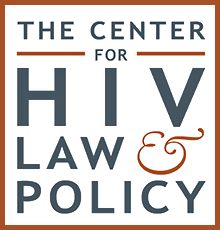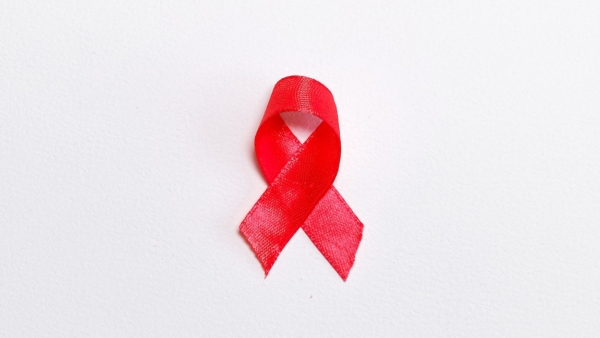Overview
Kentucky state law contains HIV-specific provisions criminalising sex work and the donation of blood. Additionally, there is a general disease provision which can be used to criminalise perceived ‘exposure’, and general criminal laws have also been used extensively to prosecute people living with HIV.
The Penal Code criminalises sex work generally under a ‘prostitution’ offence, which also requires everyone convicted of engaging or procuring sex work to undergo testing for HIV. Anyone found to be knowingly living with HIV and aware that they could transmit HIV through sex, and who commits, offers, agrees to, or procures ‘prostitution’, is guilty of a class D felony, and is liable to an enhanced sentence of up to five years’ imprisonment and a fine. This penalty is significantly longer than for people living with other STIs (up to one year), and can be imposed in addition to the base offence penalty. There are no defences of disclosure or the use of condoms. There is also no requirement for intent or transmission for this offence, and people living with HIV can be charged without even engaging in any sexual acts, as has been seen in at least one case. In March 2024, it was reported that lawmakers were considering a bill which would downgrade the penalty for an HIV offence – presumably the ‘prostitution’ law – from a felony to a misdemeanour.
Prior to repeal, there was also a law that made it an offence for people living with HIV to donate organs, skin, or other human tissue if they have been informed of the risk of transmission by this means. This provision was a class D felony, and intent and transmission were not required.
These laws were the subject of a 2021 analysis of prosecutions in Kentucky by the Williams Institute, which found that there had been 32 arrests under these two laws since 2006, with all but one relating to the sex work offence. The analysis revealed that white women are disproportionately targeted by these laws in the state, representing 65% of arrests but just 8% of people living with HIV. Unlike many other states, Black people were actually underrepresented in arrest data compared with the numbers living with HIV.
In 2018, the Kentucky legislature added a new section to the offence of third-degree assault which criminalises intentionally causing a peace officer to come into contact with bodily fluids without their consent. This is a class B misdemeanour unless the person is living with a communicable disease and medical evidence demonstrates that there is a risk of transmission, in which case it is a class A misdemeanour, enhancing the maximum sentence by four times. There has been at least one arrest under this provision since its passage, with a 2018 case involving a man living with HIV who allegedly spat at a police officer. It is not clear whether he was convicted, but given that saliva is not considered a transmission route, the requirement of a risk of transmission should have excluded this possibility.
In June 2023, the Kentucky legislature approved House Bill 349, which repealed the provision banning people living with HIV from donating organs, skin, or other bodily tissues, as well as a law which prohibited HIV self-test kits. However, a law banning blood donations by people living with HIV, or at ‘high risk for infection’, remains in force, and is liable to class D felony punishment.
Additionally, general criminal laws have been used frequently to prosecute perceived ‘exposure’ to HIV. Most commonly this has been done under the offence of ‘wanton endangerment’, including cases tried in the first-degree which requires a display of ‘extreme indifference to the value of human life’. Acts which carry little to no risk of transmission, such as spitting and biting, have been the basis for charges under this provision, as well as cases of non-disclosure to sexual partners. Other offences such as attempted murder and assault have also been used to prosecute cases of perceived ‘exposure’ regardless of transmission risk, such as in a 2013 case in which a man living with HIV allegedly threw urine at a corrections officer.
Authorities in Kentucky also have broad powers to impose treatment, testing, quarantine and isolation on people living with, or suspected of living with, communicable diseases. It is not clear what penalty can be imposed for failure to comply with such orders.
For a detailed analysis of HIV criminalisation in Kentucky, as well as all other US states, see the Center for HIV Law and Policy report, HIV Criminalisation in the United States: a Sourcebook on State and Federal HIV Criminal Law and Practice.
Laws
Kentucky Statutes § 529.090
Prostitution or procuring prostitution with knowledge of sexually transmitted disease or HIV
(1) Any person convicted of prostitution or procuring another to commit prostitution under the provisions of KRS 529.020 shall be required to undergo screening for human immunodeficiency virus infection under direction of the Cabinet for Health and Family Services and, if infected, shall submit to treatment and counseling as a condition of release from probation, community control, or incarceration. Notwithstanding the provisions of KRS 214.420, the results of any test conducted pursuant to this subsection shall be made available by the Cabinet for Health and Family Services to medical personnel, appropriate state agencies, or courts of appropriate jurisdiction to enforce the provisions of this chapter.
(2) Any person who commits prostitution and who, prior to the commission of the crime, had tested positive for a sexually transmitted disease and knew or had been informed that he had tested positive for a sexually transmitted disease pursuant to KRS 214.410 and that he could possibly communicate such disease to another person through sexual activity is guilty of a Class A misdemeanor. A person may be convicted and sentenced separately for a violation of this subsection and for the underlying crime of prostitution.
(3) Any person who commits, offers, or agrees to commit prostitution by engaging in sexual activity in a manner likely to transmit the human immunodeficiency virus and who, prior to the commission of the crime, had tested positive for human immunodeficiency virus and knew or had been informed that he had tested positive for human immunodeficiency virus and that he could possibly communicate the disease to another person through sexual activity is guilty of a Class D felony. A person may be convicted and sentenced separately for a violation of this subsection and for the underlying crime of prostitution.
(4) Any person convicted of procuring another to commit prostitution in a manner likely to transmit the human immunodeficiency virus and who, prior to the commission of the crime, had tested positive for human immunodeficiency virus and knew or had been informed that he had tested positivefor human immunodeficiency virus and that he could possibly communicate the disease to another person through sexual activity is guilty of a Class D felony
Kentucky Statutes § 311.990
Penalties
(31)
(…)
(b) Any person who has human immunodeficiency virus infection, who knows he is infected with human immunodeficiency virus, and who has been informed that he may communicate the infection by donating organs, skin, or other human tissue who donates organs, skin, or other human tissue shall be guilty of a Class D felony.
Kentucky Statutes § 214.454 / § 214.990
Donations – conditions
(1) No person shall donate blood if the person is at high risk for infection with the human immunodeficiency virus, or has acquired immunodeficiency syndrome, or has tested confirmatory positive for the human immunodeficiency virus or any other known causative agent of a blood-borne communicable disease.
(2) No person shall give false information to the staff of a blood establishment regarding any item of the person’s personal history which would affect the person’s suitability as a donor.
Penalties
(7) Any person who knowingly violates any provision of KRS 214.452 to 214.466 shall be guilty of a Class D felony. Each violation shall constitute a separate offense.
Kentucky Statutes § 508.025
Assault in the third degree
(…)
(c) Intentionally causes a person, whom the actor knows or reasonably should know to be a peace officer discharging official duties, to come into contact with saliva, vomit, mucus, blood, seminal fluid, urine, or faeces without the consent of the peace officer.
(2) (…)
(b) For violations of subsection (1)(c) of this section, assault in the third degree is a Class B misdemeanor, unless the assault is with saliva, vomit, mucus, blood, seminal fluid, urine, or feces from an adult who knows that he or she has a serious communicable disease and competent medical or epidemiological evidence demonstrates that the specific type of contact caused by the actor is likely to cause transmission of the disease or condition, in which case it is a Class A misdemeanor.
(c) As used in paragraph (b) of this subsection, “serious communicable disease” means a non-airborne disease that is transmitted from person to person and determined to have significant, long-term consequences on the physical health or life activities of the person infected.
Kentucky Statutes § 508.060
Wanton endangerment in the first degree
(1) A person is guilty of wanton endangerment in the first degree when, under circumstances manifesting extreme indifference to the value of human life, he wantonly engages in conduct which creates a substantial danger of death or serious physical injury to another person.
(2) Wanton endangerment in the first degree is a Class D felony.
Further resources
Not all laws used to prosecute people living with HIV in this state are included on this page. For a comprehensive overview and analysis of HIV-related criminal and similar laws and policies, visit The Center for HIV Law and Policy
Using data from the Uniform Crime Reporting Section of the Kentucky State Police, this brief examines the use and enforcement of HIV-related laws in Kentucky.










